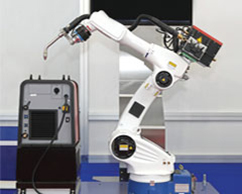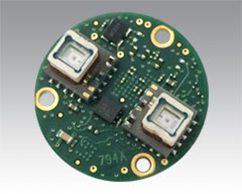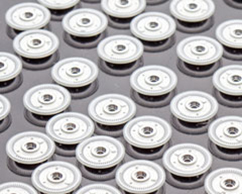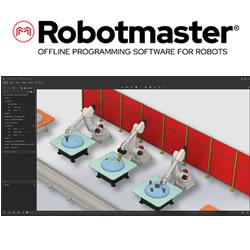The customer required precision rotary axis control in the lowest profile form factor for multiple sequential robot arm joints. Key additional requirements included minimal movement at start-up to report absolute position...
Celera Motion Case Study – Precision Rotary Axis Control
Contributed by | Celera Motion
The Challenge
 The customer required precision rotary axis control in the lowest profile form factor for multiple sequential robot arm joints. Key additional requirements included minimal movement at start-up to report absolute position, and minimal signal cabling keep the overall arm size as small as possible.
The customer required precision rotary axis control in the lowest profile form factor for multiple sequential robot arm joints. Key additional requirements included minimal movement at start-up to report absolute position, and minimal signal cabling keep the overall arm size as small as possible.The Solution
 A series of custom-sized PCB-based encoder modules with FPGA control and BiSS communication interfaces was developed by MicroE, each featuring two standard ChipEncoder™ readheads and a Micro Motion Absolute™ (MMA) rotary grating disk. MMA grating technology employs a standard 40 micron pitch incremental counting track, coupled with a reference track where each index is uniquely spaced. With only a small movement at start-up, multiple index marks are detected, and the measured spacing is compared to a lookup table in firmware to determine the absolute position.
A series of custom-sized PCB-based encoder modules with FPGA control and BiSS communication interfaces was developed by MicroE, each featuring two standard ChipEncoder™ readheads and a Micro Motion Absolute™ (MMA) rotary grating disk. MMA grating technology employs a standard 40 micron pitch incremental counting track, coupled with a reference track where each index is uniquely spaced. With only a small movement at start-up, multiple index marks are detected, and the measured spacing is compared to a lookup table in firmware to determine the absolute position.The Benefit
 The output of the two encoders are averaged for improved rotational accuracy, and absolute position is determined at start-up with minimal axial rotation. BiSS serial communication protocol allows each successive robot joint to be connected in a daisy-chain arrangement, rather than having dedicated bus cables for each axis, which along with the small size of the ChipEncoder helps reduce the overall size of the each joint. High speed serial communication (32MHz clock, 1µsec update rate) assures high robot responsiveness to the operator’s commands.
The output of the two encoders are averaged for improved rotational accuracy, and absolute position is determined at start-up with minimal axial rotation. BiSS serial communication protocol allows each successive robot joint to be connected in a daisy-chain arrangement, rather than having dedicated bus cables for each axis, which along with the small size of the ChipEncoder helps reduce the overall size of the each joint. High speed serial communication (32MHz clock, 1µsec update rate) assures high robot responsiveness to the operator’s commands.Specifications
| PCB Diameter | 20mm |
| Scale Diameter | 15mm |
| Total Module Height | 13.8mm |
| Serial Interface | BiSS C |
| Clock Rate | 32 MHz |
| Position Update Rate | 1µsec |
| Resolution | 85,280 CPR (15.2 arc-sec; 73.7µrad) |
| Cable Wire Count | 5 twisted pairs, 32AWG |
The content & opinions in this article are the author’s and do not necessarily represent the views of RoboticsTomorrow
Comments (0)
This post does not have any comments. Be the first to leave a comment below.
Featured Product

Robotmaster® 2024
Program multi-robot cells and automatically solve robotic errors with ease. Hypertherm Associates announces a new version to its robotic programming software. Robotmaster 2024 addresses key market trends including the support for programming multiple robots in a single work cell and the demand for automatic trajectory optimization and robotic error correction.
